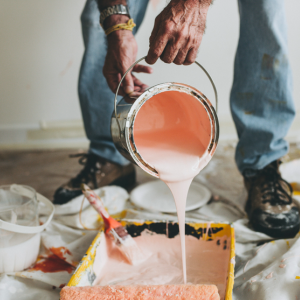A professional painter is expected to possess several key qualities and skills to ensure high-quality work and client satisfaction. Here are some expectations from a professional painter:
Expertise and Skill: A professional painter should have a deep understanding of various painting techniques, tools, and materials. They should be proficient in preparing surfaces, applying primers, selecting and mixing paints, and executing precise brushwork or spray application.
Knowledge of Materials: A professional painter should be well-versed in different types of paints, varnishes, stains, and finishes. They should be able to advise clients on the appropriate choices for their specific needs, considering factors such as durability, color options, and environmental impact.
Attention to Detail: A professional painter should have a keen eye for detail, ensuring that surfaces are properly prepared, edges are clean, and paint is applied evenly. They should pay attention to fine details, such as filling cracks and imperfections, and have a good sense of color coordination.
Time Management: Meeting deadlines is crucial for a professional painter. They should be able to estimate the time required for each project accurately and organize their work effectively to complete projects within the agreed-upon timeframe.
Safety Measures: Safety is paramount in painting projects. A professional painter should be knowledgeable about safety protocols, including handling and disposing of paints and chemicals safely, working at heights, and taking necessary precautions to protect themselves, clients, and the surrounding environment.
Professionalism and Reliability: A professional painter should exhibit professionalism by maintaining clear communication with clients, being punctual, and respecting the agreed-upon terms and conditions. They should also be reliable, completing projects as promised and addressing any concerns or issues promptly.
Problem Solving: Unexpected challenges can arise during painting projects. A professional painter should have problem-solving skills to overcome obstacles, such as addressing surface issues, adapting to changing conditions, or finding creative solutions to achieve the desired results.
Customer Service: A professional painter should prioritize customer satisfaction by actively listening to clients’ needs, providing clear explanations, and offering guidance on color selection or design choices. They should strive to create a positive experience throughout the project.
Cleanliness and Organization: A professional painter should maintain a clean and organized work area. They should take measures to minimize disruptions to the client’s property, such as covering furniture, protecting floors, and cleaning up thoroughly after completing the project.
Continuous Learning: To stay updated with industry trends, new techniques, and advancements in paints and materials, a professional painter should have a mindset of continuous learning. This can involve attending workshops, seeking certifications, or staying engaged with painting communities.
These expectations collectively contribute to the professionalism and expertise expected from a professional painter, ensuring that they deliver high-quality workmanship and meet the needs of their clients.









